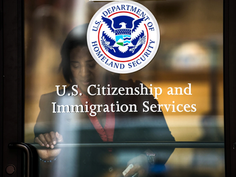Egypt’s Perspective on Russia: Opportunities for Cooperation
- Chethana Janith

- Dec 8, 2024
- 6 min read
Chethana Janith, Jadetimes Staff
C. Janith is a Jadetimes news reporter covering science and geopolitics.
What is clear is that Moscow and Cairo’s mutual understanding of the importance and position of each other, along with the provision of common strategic, economic, security, and military perspectives, has led to the current trend of increasing relations.

The relations between Egypt and Russia date back to before the 16th century. Relation between Egypt and Russia is divided into two periods, before and after the collapse of the Soviet Union.
Relations between Egypt and Russia began in 1943 between the Egyptian government and the Soviet government, and relations developed after the 1952 revolution. Therefore, the Soviet Union acted as the main protector and defender of Egypt, and Egypt witnessed an unprecedented industrial renaissance.
During the Cold War, relations were exceptionally good. Egypt was also at the forefront of the countries that established diplomatic relations with the Russian Federation in 1991, and political relations developed at the level of heads of state, government, and parliamentary levels.
Russia’s interest in Egypt became more evident during the developments of January 25, 2011, and the overthrow of the Muslim Brotherhood in 2013, and the dimensions of relations expanded during the presidency of Abd el-Fattah Al-Sisi.
Political and geopolitical:
The latest Russian foreign policy concept for 2023 highlights Egypt’s role as a key country in the Islamic world. Egyptian elites also see Russia as a key ally in foreign policy.
Establishing good relations with Moscow is one of the important pillars of Egyptian foreign policy and helps Cairo balance its relations with major powers, especially the United States and the European Union.
From this perspective, relations with Moscow help diversify Cairo’s international relations and open up avenues for cooperation and partnership with many countries worldwide, enhance Egyptian diplomacy’s credibility, and prevent blackmail and overt interference in Egypt’s internal affairs. Egypt, trying to put aside unilateralism in its foreign policy, thought about expanding relations with Moscow. The rise of Abdel Fattah Al-Sisi in Egypt was an important opportunity to strengthen relations between Moscow and Cairo, and both sides welcomed a new relationship.
The scope of cooperation between the two countries has increased since 2013, and meetings of leaders and officials such as the defense and foreign ministers have increased the proximity of Russia and Egypt.
Russia is politically and strategically interested in Africa and Egypt. Russia considers the continent’s players as the key partners in the future world order. Therefore, Moscow is directing its efforts towards Egypt.
In addition, in Russian documents, Egypt and African countries have found a greater place in Russian foreign policy and defense doctrine.
In this regard, cooperation between Moscow and Cairo has been highlighted in areas such as greater cooperation across the continent, strengthening diplomatic relations with African countries, monitoring the activities of terrorist groups, expanding trade and economic interaction, and preventing crises.
Egypt considers itself the most important and influential Arab country in the Middle East and, apart from presidential meetings and strategic relations, it needs Russia’s help in a just and sustainable resolution of the Palestinian issue and the creation of a Palestinian state, Sudan, Libya, and the security of the Red Sea and other regional crises.
Libya could be a platform for increased cooperation between Moscow and Cairo in the fight against terrorism, protecting interests, or for Moscow to play a mediating role in the Cairo-Addis Ababa tensions over the Ethiopian Renaissance Dam project on the Blue Nile River.
Strong relations with Russia would not only allow Egypt to regain its image as an important international country but could also help in balancing with other regional powers such as Turkey and Iran.
The Comprehensive Partnership and Strategic Cooperation Agreement, which was signed in 2018, covered military, security, trade, and economic aspects of cooperation.
Apart from the online ceremony in January and welcoming a “new stage” in relations, in the past year and Sisi’s meetings with Putin, coordination and agreement on various regional and international issues, the paramount importance of reducing tensions in the Middle East, the need to achieve an immediate ceasefire in Gaza and Lebanon, reducing tensions and avoiding a further crisis, supporting Lebanon, supporting the Syrian government and national institutions, and combating terrorism are of paramount importance.
Abdel Fattah al-Sisi’s meeting with Vladimir Putin at the BRICS summit in Kazan in 2024 was accompanied by Egypt’s appreciation for Russia’s support for economic projects and BRICS membership and “the development of bilateral relations.” This was in a context where Putin considers Egypt to be “a long-term and reliable partner of Russia.”
Security and military cooperation
Security and military cooperation is a priority in Russian-Egyptian relations. Egypt’s desire to strengthen its defense capabilities and, conversely, Russia’s interest and need to sell its military weapons have been instrumental in strengthening military ties between the two countries.
In the last decade, arms deals have become prominent in relations between the two countries with the delivery of new warplanes, the Su-35, helicopters, (SAM)، and coastal defense systems.
The two countries’ views on regional issues of extremist groups such as ISIS, the crisis of Islamic extremism in the Sinai Peninsula, the North Caucasus, the fight against terrorism, and the list of banned terrorist organizations are similar.
The security needs have led Cairo to move towards increased cooperation in the fight against terrorism, extensive security and intelligence cooperation, information exchange, strengthening high-level coordination in the fight against terrorism, and joint exercises and maneuvers with Moscow.
Egypt has also previously purchased advanced weapons from Moscow, ignoring threats from the United States. Even in recent years, there have been discussions about the joint use of air forces, even the establishment of a Russian base in Egypt.
Economic and energy opportunities
Despite the electricity shortage in Egypt, Russia is an important source of modern technology for Egypt, especially in the energy sector. The most important of these is Egypt’s first nuclear power plant in Dabaa, built by Rosatom on the Mediterranean coast.
Egypt-Russia cooperation in the field of nuclear energy includes preparing the nuclear industry, training specialists, and building four nuclear power plants worth 26 billion dollars.
There are several economic contexts in Egypt-Russia relations such as oil extraction in the Red Sea, and the development of the gas field in the Mediterranean, there is also a possibility of signing a free trade agreement between Egypt and the Eurasian Economic Union.
Cairo hopes to implement large joint projects, the Russian industrial zone on the Suez Canal, the development of Egypt’s industrial infrastructure, and a free trade agreement with the Eurasian Economic Union.
By membership in BRICS, Egypt wants to develop alternative routes, promote economic growth, diversify the economy, minimize costs, develop e-commerce, and market integration, and have cooperation with other BRICS countries.
Egypt expects to raise its local currency by becoming a member of BRICS and to implement several trade initiatives with Russia to help reduce dependence on the dollar.
Russia is an important market for Egyptian goods. Trade exceeded $5 billion in 2023, a third of Russia’s trade with the entire African continent. Russia supplies about 70 percent of Egypt’s wheat needs.
With the negative consequences of the Ukraine crisis, rising food prices, and hosting millions of migrants and refugees, Egypt wants Russia to remain a reliable source of Egypt’s basic food needs and grain, and to cooperate in a global logistics hub for storing and trading grain in the Mediterranean Sea.
With more than 105 million people, Egypt is the most populous country in North Africa needs foreign direct investment.
The Russian private sector has invested more than $8 billion in Egypt. Egypt also hopes to attract more Russian-Egyptian air travel and the return of a large number of Russian tourists (1.5 million Russians in 2023). Also, space cooperation is another promising area of Egyptian partnership with Russia.
The future of relationships
Cultural bridges such as the religious ties between the Coptic and Russian Orthodox churches, cultural centers, Egyptian students in Russia, the Egypt-Russia University (ERU), the role of the Russian language as a second language in Egypt, and Russian tourists in Egypt connect the two countries. The majority of Egyptians see Russia as a partner, and Russia’s soft power in Egypt is good, with cooperation with Russian media outlets such as RT Arabic.
Moscow’s assistance in achieving Egypt’s development goals and Vision 2030, reaching the goal of 100 billion in annual exports, and increasing the volume of GDP are certainly important. Egypt has sometimes reduced its relations with Russia due to pressure from Washington, and the Russia-Ukraine conflict has created challenges for cooperation, but mutual interests are the basis of the partnership between Egypt and Russia.
What is clear is that Moscow and Cairo’s mutual understanding of the importance and position of each other, along with the provision of common strategic, economic, security, and military perspectives, has led to the current trend of increasing relations.
In this case, after the eighty-first anniversary of the establishment of bilateral relations, we should expect the continuation and even deepening of the two sides’ relations in the coming years.











































Comments